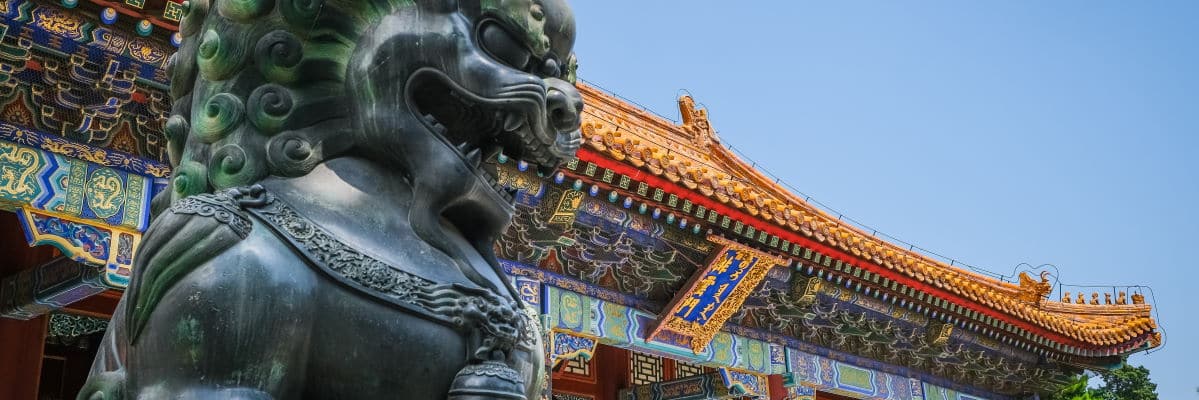When, in 2016, Warcraft - The Beginning, a fantasy film based on the video game series of the same name, was released in theaters, it had an unusual response: by mid-year in the United States it had grossed only 30 million dollars (against 160 million in production costs), but in China it had already earned 190 million. This was due to a number of reasons, among which was the hypothesis that the fantastic folklore (made of orcs, dwarves and wizards typical of the western tradition) had begun to find mass success among the younger generations of Chinese thanks to the video games of the "Warcraft" saga, which began in 1993.
This example illustrates how, between the Asian giant and the West, there are still very marked cultural differences, which are also reflected in the way a whole series of entertainment products are received. Sometimes China has tried to exploit its openness to adopt soft power strategies, while at other times it has managed to heavily censor foreign products, seen as not in line with the values that the State would like to impose on society.
Movies
To understand how in China the State can intervene in a radical way to create a cultural distance with respect to the rest of the world, one need only think that the film Spider-Man: No Way Home, which managed to gross more than 1.6 billion dollars globally, was not released there. In general, "Marvel" superhero films have never been very well received in China, at a time when Hollywood film screenings were already declining. For years, the U.S. film industry has had written agreements with the Beijing government to export films to the country: the last such agreement ended in 2017, and since then, the number of imported movies has gradually declined, from more than 30 titles in 2019 to fewer than 20 in 2021.
According to an analysis by the American website "Deadline", this is due to a number of factors. The first is that, according to the Chinese Communist Party, such films present "a distorted version of political correctness" and make "improper use of Chinese elements", as reported in a recent article in the pro-government newspaper "Global Times". The second of these accusations was aimed in particular at the movie Shang-Chi and the Legend of the Ten Rings, which features a superhero of Chinese origin inspired by old martial arts movies starring Bruce Lee.
Another issue is that if an actor or director says something critical of China, their films are usually banned in the country. This may be one of the reasons they ostracized the film Eternals, whose director, Chinese émigré to the U.S. Chloé Zhao (winner of the Best Director Oscar in 2021 for Nomadland), called her home country "a place where there are lies everywhere."
China has long aspired to become the largest film market in the world: the country is home to over 82,000 movie theaters and is expected to reach over 100,000 by 2025. In past years, the Chinese have tried to produce films specifically to exert a certain soft power outside their borders: in 2015, the film Wolf Totem was released, financed by the Chinese government and directed by French director Jean-Jacques Annaud, known for adapting Umberto Eco's The Name of the Rose.
The case of Annaud is exemplary in understanding their tactics. In 1997 he directed Seven Years in Tibet, a film still banned in China for its pro-Dalai Lama positions, and the director himself was not allowed to enter the country for years. In the years leading up to the release of Wolf Totem, Annaud publicly backtracked on his previous support for the cause of free Tibet. He also spoke well of the Chinese censors who, according to his version, gave him carte blanche for his latest film, where, however, he reduced the critical references to the Chinese government found in the original novel from which it is based, to make it a simple story about the relationship between man and nature.
Another noteworthy case concerns The Great Wall, a fantasy action film released in 2016 that featured American actor Matt Damon in the lead role. Although in the eyes of many analysts it was part of a strategy to positively influence the perception of China abroad (the "Wanda" production company that financed it is close to the Communist Party), the film was accused by Asian communities in America of whitewashing, i.e. allowing a white person to take away a role that would belong to another ethnicity.
Comics
Over the years China has strongly censored also foreign comics and, in particular, Japanese manga. In the latter case, it was due to the fact that many Chinese still bear a grudge against the Rising Sun for the war crimes committed by Japanese troops during World War II. For example, in February 2020, two Chinese online comic book platforms, "Bilibili" and "Tencent," removed the manga "My Hero Academia" because of a character named Maruta. This was a code name for the victims of experiments conducted by the Japanese on Chinese prisoners during the war.
More recently, in July 2021, as part of efforts to crush pro-democracy riots in Hong Kong, Chinese authorities arrested five members of an association that published children's books and comics on charges of sedition. Through images of sheep and lambs, the books in question narrated a series of episodes that saw Hong Kong citizens pitted against Beijing's law enforcement agencies. Therefore, the police accused those involved of being "seditious conspirators."
Videogames
The Chinese State has also intervened with numerous restrictions on video games, not only for political reasons but also to prevent addiction among children: at the end of August 2021 it was decreed that young people under 18 could play no more than one hour a day and three hours a week. The National Press and Publication Administration issued the directive "for the effective prevention of underage addiction to online games," in order to address the problem of overuse. The maximum limit a child can spend on video games was also lowered to 200 yuan (about 28 euros) per month.
Reducing game addiction is a legitimate argument, but it has heavily damaged the sector's economy: at the beginning of January, “Wired” reported that this policy has caused the closure of more than 14,000 video game companies, to which must be added those dealing with merchandising, advertising and publishing. And we have to consider that, when the bans came into force, China had the largest pool of gamers in the world: 520 million people, through which the sector generated a turnover of over 43 billion dollars.
But there have also been cases of video games being contested in China for political reasons: this is the case of Life is Strange: True Colors (of American production and distributed in September 2021 by the Japanese company "Square Enix"), because the flag of Tibetan independence was present. This has aroused the ire of Chinese players, who on the platform "Steam" have stormed the game with negative reviews.
But parallel to these episodes of censorship, China has invested many resources in video games to increase its soft power. To reinforce national identity, the production of war games with a historical background has been launched: The Invisible Guardian, dedicated to the second Sino-Japanese war; Glorious Missions, the Chinese counterpart of Call of Duty, also designed to train soldiers in the real world; Fearless Journey, dedicated to the "resistance" against the USA in the Korean War.
Giornalista pubblicista, ha scritto per le testate Mosaico, Cultweek and Il Giornale Off. Laureato in Beni culturali (Università degli Studi di Milano) e laureato magistrale in Giornalismo, cultura editoriale e comunicazione multimediale (Università di Parma).









Scrivi un commento